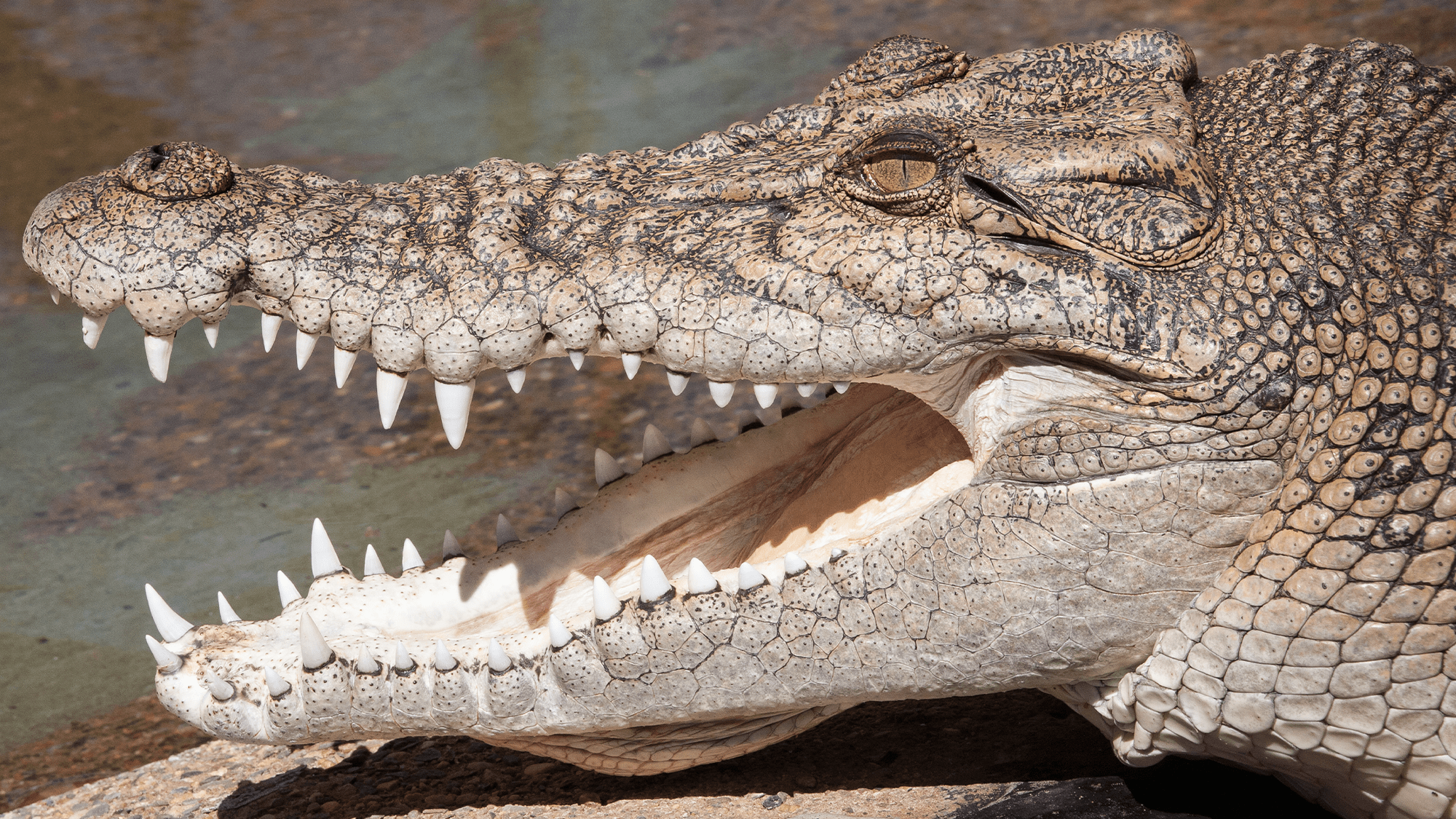

On May 27, an Australian man snorkeling off of the coast of North Queensland survived an attack from a saltwater crocodile—by prying the reptile’s jaws off of its head. Australia’s reptilian saltwater giants have the highest bite force of any animal on Earth at 3,700 pounds.
McGowan was snorkeling with his wife and some friends near the Charles Hardy Islands, about 25 miles off the coast of Cape York on the day of the attack.
[Related: Saltwater crocodiles are eating a lot of feral hogs in Australia.]
“I was attacked from behind by a saltwater crocodile which got its jaws around my head. I thought it was a shark but when I reached up I realized it was a crocodile. I was able to lever its jaws open just far enough to get my head out,” McGowan said in a statement released by the Queensland Government’s hospital service.
According to McGowan, the crocodile attempted to attack a second time, but he managed to push it away with his right hand that had already been bitten by the reptile. McGowan was transported to Haggerstone Island about 45 minutes away, before going to Cairns Hospital. He suffered cuts and puncture wounds to his head and hands and is currently recovering from his injuries.
The area surrounding Haggerstone Island is known as “croc country,” according to the Queensland’s Department of Environment and Science. The department urges visitors to practice “crocwise behavior,” such as staying away from the water’s edge, properly disposing food, and keeping pets on a leash. The department warned that crocodiles could be in all of the waterways in the region and that people in smaller vessels like kayaks, standing close to the water’s edge, or wading while fishing are at a greater risk of a croc attack. Queensland’s science department is investigating this most recent incident, stressing the importance of reporting crocodile sightings and incidents in a timely manner.
There have been at least 44 occasions of crocodile attacks on humans in the area since 1985. In February, a non-fatal attack occurred off the Cape York Peninsula, where another man was able to free himself from the jaws of a crocodile.
[Related: This small crocodile’s giant ancestors likely preyed on early humans.]
Billy Collett, the operations manager at Australia Reptile Park told The Guardian that those who escape crocodile attacks usually frighten the reptiles away. “Crocodiles are the hardest-biting animal on the planet. But when people do fight back, they seem to let go,” he said. “[McGowan] probably scared the croc which realized it grabbed something too big to handle.”
According to the Australia Zoo, the home of famed crocodile advocate Steve Irwin, saltwater crocodiles can grow up to 19 feet long and weigh up to 2,000 pounds. They can swim up over 500 miles per day, which can make them difficult to track. Locals affectionately call the reptiles “salties” and they are more commonly found in Australia’s warmer northern regions. Australia’s federal government estimates that there are about 100,000 saltwater crocodiles in the northern parts of the country.
“I live on the Gold Coast and am a keen surfer and diver, and understand that when you enter the marine environment, you are entering territory that belongs to potentially dangerous animals, such as sharks and crocodiles,” McGowan said in his statement.“I was simply in the wrong place, at the wrong time.”
